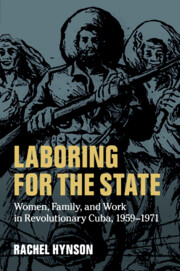Book contents
- Laboring for the State
- Cambridge Latin American Studies
- Laboring for the State
- Copyright page
- Dedication
- Contents
- Figures
- Acknowledgments
- Abbreviations
- Introduction
- 1 In the Hands of Physicians
- 2 “The husband must protect the wife and the latter obey the husband”
- 3 From the Streets to the Home
- 4 The Elasticity of Truth
- Epilogue
- Bibliography
- Index
- Series page
4 - The Elasticity of Truth
Creating Male Heads of Household through Forced Labor
Published online by Cambridge University Press: 09 January 2020
- Laboring for the State
- Cambridge Latin American Studies
- Laboring for the State
- Copyright page
- Dedication
- Contents
- Figures
- Acknowledgments
- Abbreviations
- Introduction
- 1 In the Hands of Physicians
- 2 “The husband must protect the wife and the latter obey the husband”
- 3 From the Streets to the Home
- 4 The Elasticity of Truth
- Epilogue
- Bibliography
- Index
- Series page
Summary
The government’s early use of discipline and forced labor to reform male work practices reveals the close link between physical labor and citizenship. In 1961, Law 993 eschewed due process and gave the Ministry of the Interior authority to evaluate and sentence chulos and other “states of dangerousness.” Increasingly, agricultural labor was used to compel chulos and other antisociales to overcome prerevolutionary handicaps and gain revolutionary citizenship through economic utility. But between 1962 and 1964, Fidel and Che resolutely denied the existence of the rumored Guanahacabibes work camp and asserted instead that the Uvero Quemado rehabilitation center was the only institution bearing the name “Guanahacabibes.” In their refutations, these leaders promoted an alternative version of truth to that advanced by ordinary Cubans, who challenged the state narrative by spreading rumors. Contemporaries also identified the Guanahacabibes work camp as a precursor to the infamous UMAP work camps. But for all the state’s efforts, early attempts at reforming chulos and vagos were largely ineffective. The 1971 Law Against Idleness, which focused with renewed interest on the country’s unconventionally employed, illustrates how legislative changes replaced extralegal raids and contributed to the ever-narrowing definition of appropriate and legal revolutionary labor.
Keywords
- Type
- Chapter
- Information
- Laboring for the StateWomen, Family, and Work in Revolutionary Cuba, 1959–1971, pp. 201 - 256Publisher: Cambridge University PressPrint publication year: 2020



